How will Barbados move on as the Queen is removed as head of state?
For the first time since 1992, the Queen is to be removed as a head of state when Barbados becomes a republic. On the Caribbean island, Nadine White finds hope for the future – and questions about what comes next

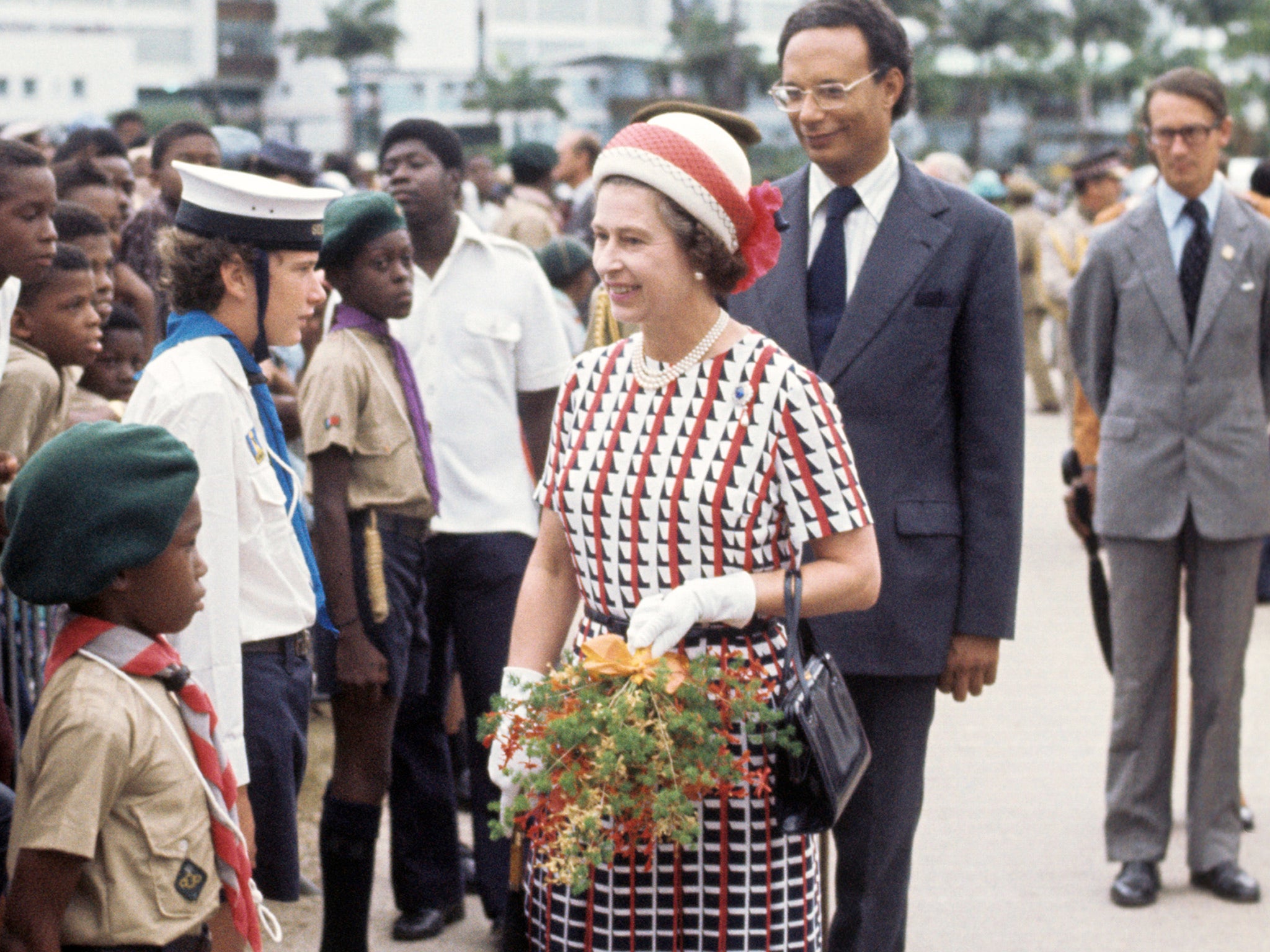
Your support helps us to tell the story
From reproductive rights to climate change to Big Tech, The Independent is on the ground when the story is developing. Whether it's investigating the financials of Elon Musk's pro-Trump PAC or producing our latest documentary, 'The A Word', which shines a light on the American women fighting for reproductive rights, we know how important it is to parse out the facts from the messaging.
At such a critical moment in US history, we need reporters on the ground. Your donation allows us to keep sending journalists to speak to both sides of the story.
The Independent is trusted by Americans across the entire political spectrum. And unlike many other quality news outlets, we choose not to lock Americans out of our reporting and analysis with paywalls. We believe quality journalism should be available to everyone, paid for by those who can afford it.
Your support makes all the difference.It is known as “Little England”, but on a beach close to Barbados’s capital Bridgetown, in the Caribbean sun, the differences between the island nation and the UK are stark. This week the two countries will diverge even further as Barbados removes the Queen as its head of state, setting a new course as a republic and cutting ties with the British crown after hundreds of years.
The move, announced last year, will be confirmed at a ceremony on Monday evening – attended by the Prince of Wales – after which Barbados will install its own head of state. Dame Sandra Mason, who currently represents the Queen as Barbados’s governor-general, will be sworn in to serve a four-year term as president.
The calendar is packed with celebratory events, with even a commemorative “Republican Blend” rum released by Bajan brand Mount Gay. But beyond the festivities, there remain questions about what the decision of Barbados to remove the Queen as head of state – the first country to do so since Mauritius in 1992 – means for the island’s future.
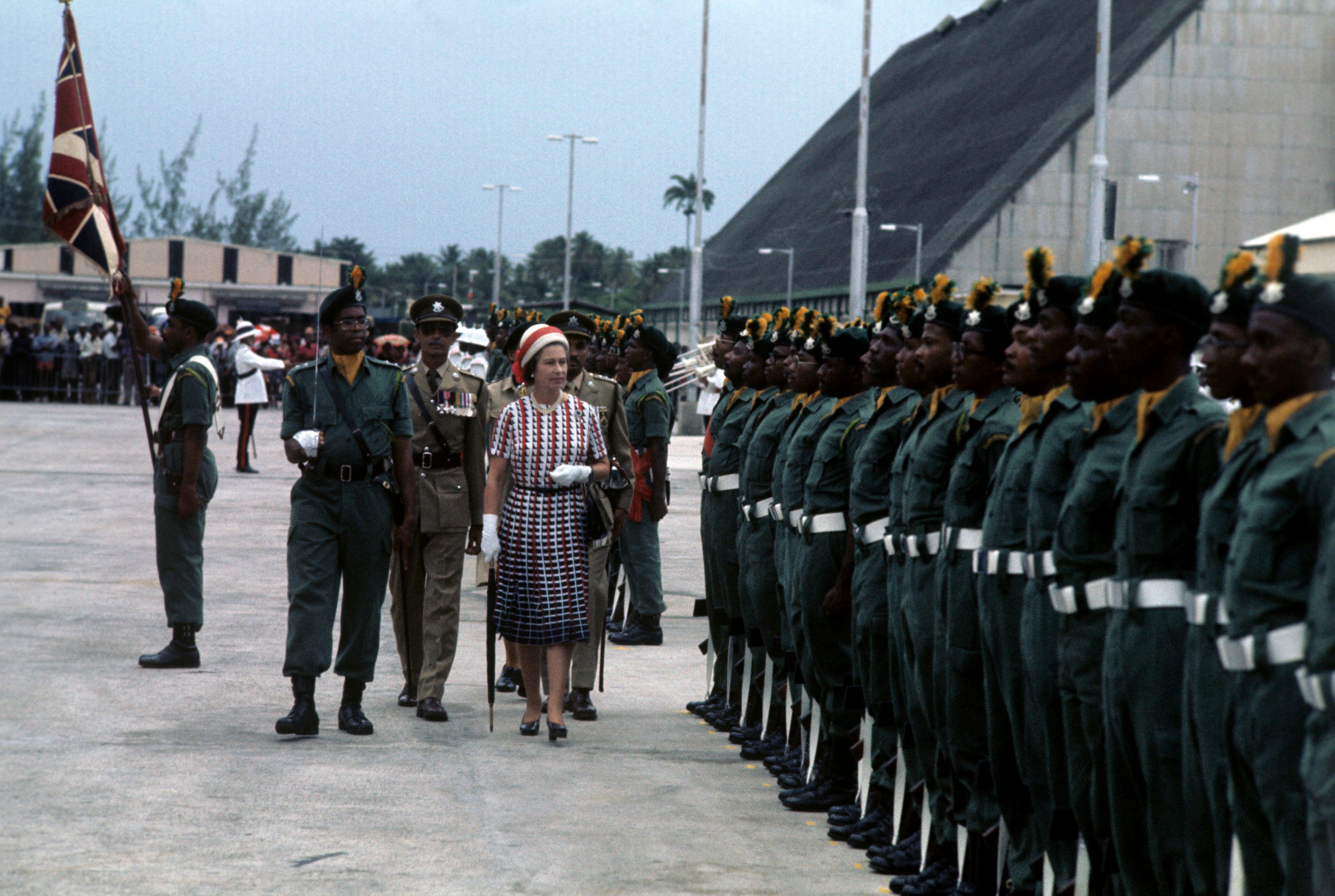
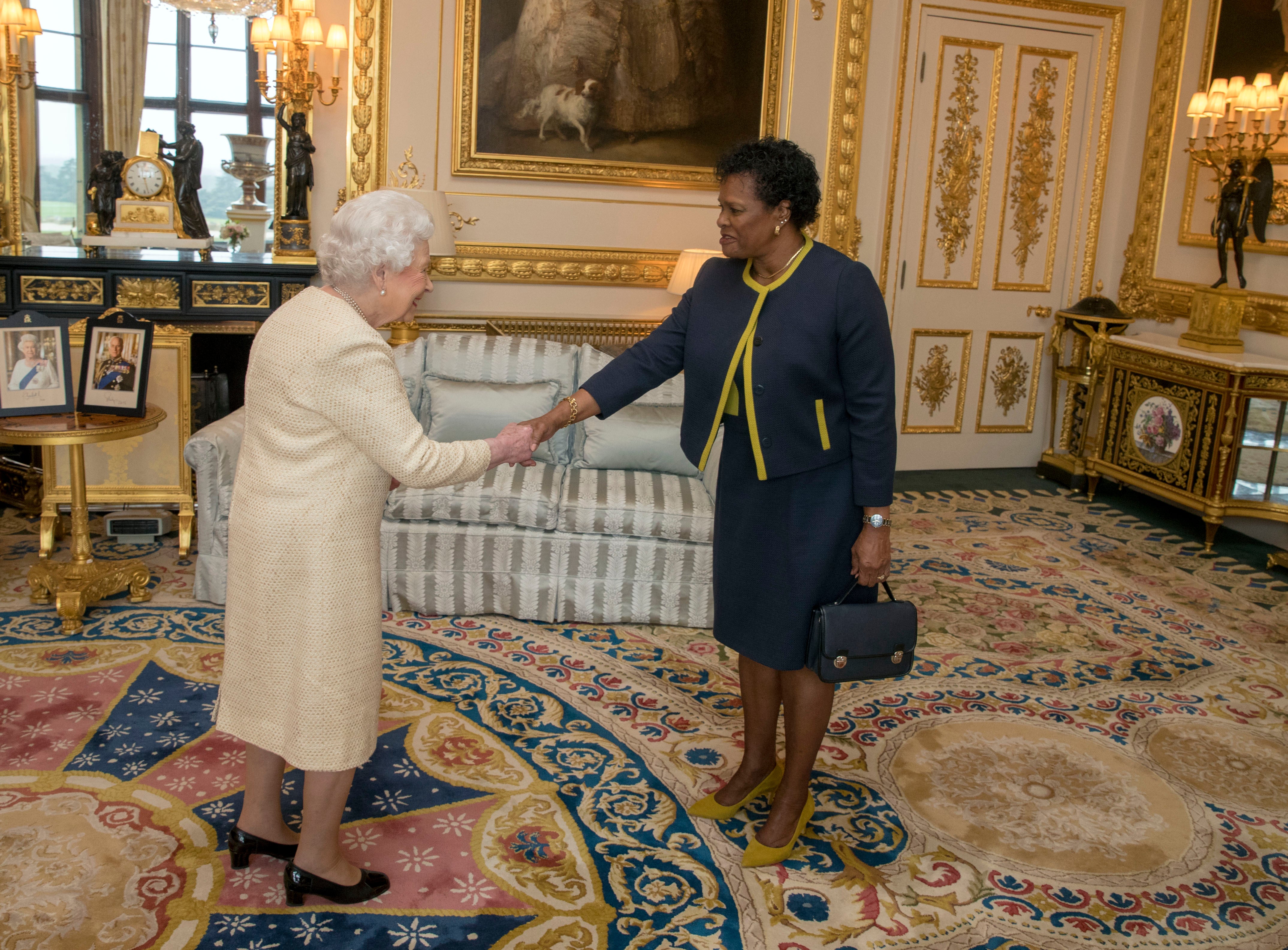
Journey to becoming a republic
Elizabeth II remained the head of state of Barbados as the island declared its independence in 1966, and has visited five times, with Prince Harry also representing her on a 2016 trip. But the move to become a republic has been mooted for decades.
In 1979, the Cox Commission was set up to examine the feasibility of Barbados becoming a republic, but concluded that citizens wanted the present system to remain.
Then, in 1998, a constitutional review commission recommended republican status, and in 2015 the then prime minister, Freundel Stuart, said: “We have to move from a monarchical system to a republican form of government in the very near future.”



The island has loosened ties with Britain in other respects, too, such as changing its final court of appeal from the London-based Judicial Committee of the Privy Council to the Caribbean Court of Justice in Trinidad and Tobago’s Port of Spain.
Academic Natalie J Walthurst-Jones said that even after 55 years of independence, Barbados’s British ties run through many aspects of life on the island.
“There is a preponderance of British culture here,” she told The Independent. “The deification of British culture permeates Barbadian society to the extent that we are called ‘Little England’ and are perceived that way by many, including other countries.
“We are seen as so British from our language, educational system, systems of government and governance, the judiciary, common law and conventions, architecture, to the symbols, namely the roads, schools, institutions and the hospital: Queen Elizabeth Hospital.
“They stamped their presence on the island and reinforced that ‘the sun does not set on the British empire’. Most of the symbols remain.”
The announcement that Barbados planned to become a republic was set out in last year’s “throne speech”, written by prime minister Mia Mottley but read by the governor-general, who is the Queen’s official representative.
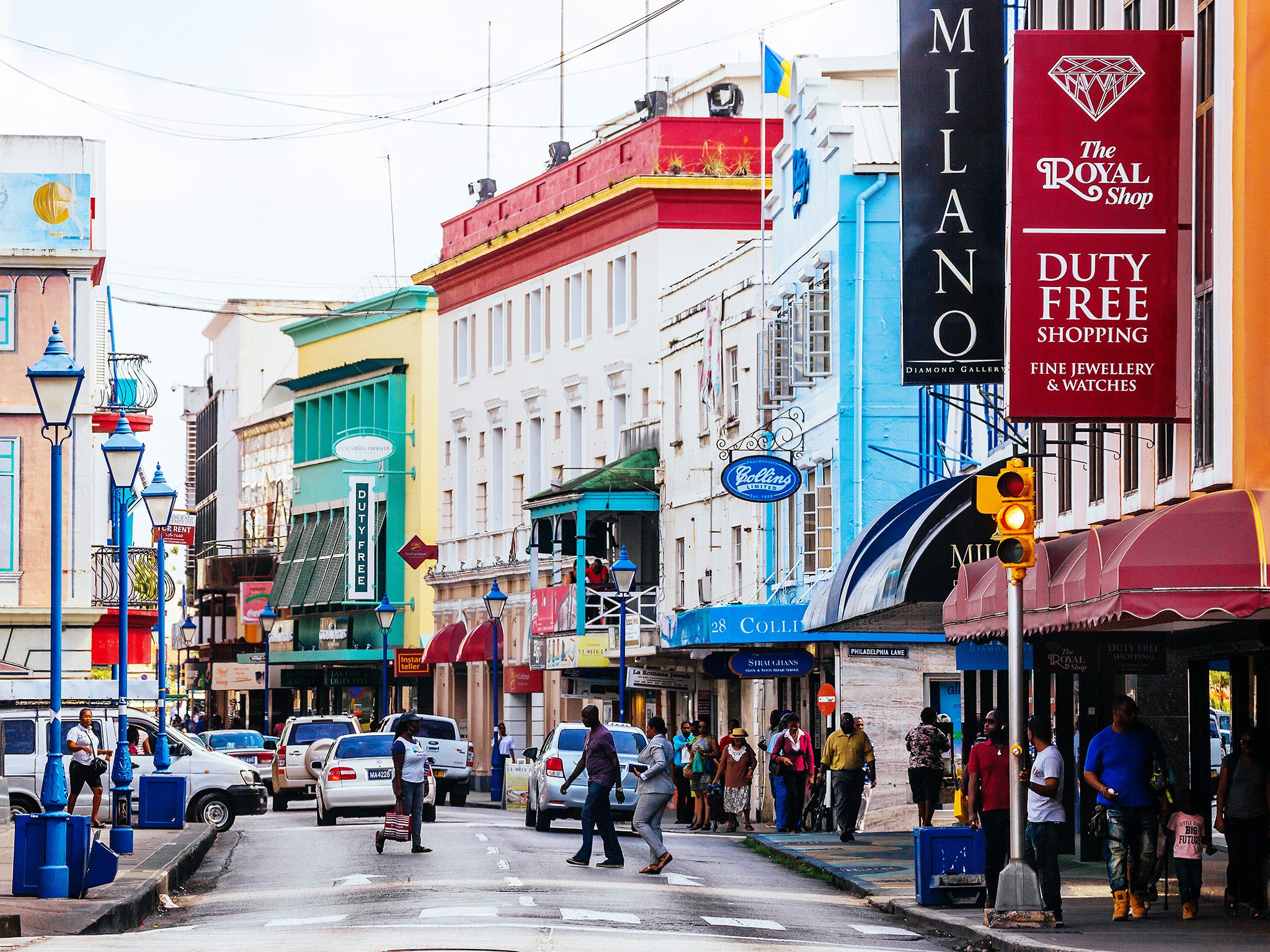
Insiders have said Buckingham Palace was blindsided by the announcement, with an official spokesperson at the time describing the move as “a matter for the government and people of Barbados”.
Racism and reparations
Conversations around British involvement in Barbados remain linked to reparations for the UK’s role in the slave trade. Ms Walthurst-Jones, co-author of an academic report on racism in Barbados in the 21st century, said that republic status alone would not change anything for the country’s Black population, who had suffered from the legacy of slavery.
“Most Black people in Barbados will continue to be at the bottom of the socioeconomic ladder,” said the academic and author of book Modern Issues in Education.
“They have traditionally shied away from entrepreneurial activity because of the inherent risk and lack of support. Therefore, Barbados becoming a republic will bring no significant changes to the Black population.”
The issue of reparations is also being raised by politicians and on the streets of Bridgetown. Carl Padmore, a community worker, told The Independent: “As a Barbadian, I think this is a natural step for the country to make; to me, we were always going to become a republic.
“From the point of independence, we more or less stated to the world – and to Britain – that we were prepared to chart our own path.
“I strongly believe that the extension to this whole republicanism issue has to be the idea of reparations.
“We should have more scholarships coming out of countries like England for Barbadians; more opportunities should be given. The slaves in Barbados built the British economy. Let’s look at renewable energy, sports, agriculture: this will liberate Barbadians even more.”
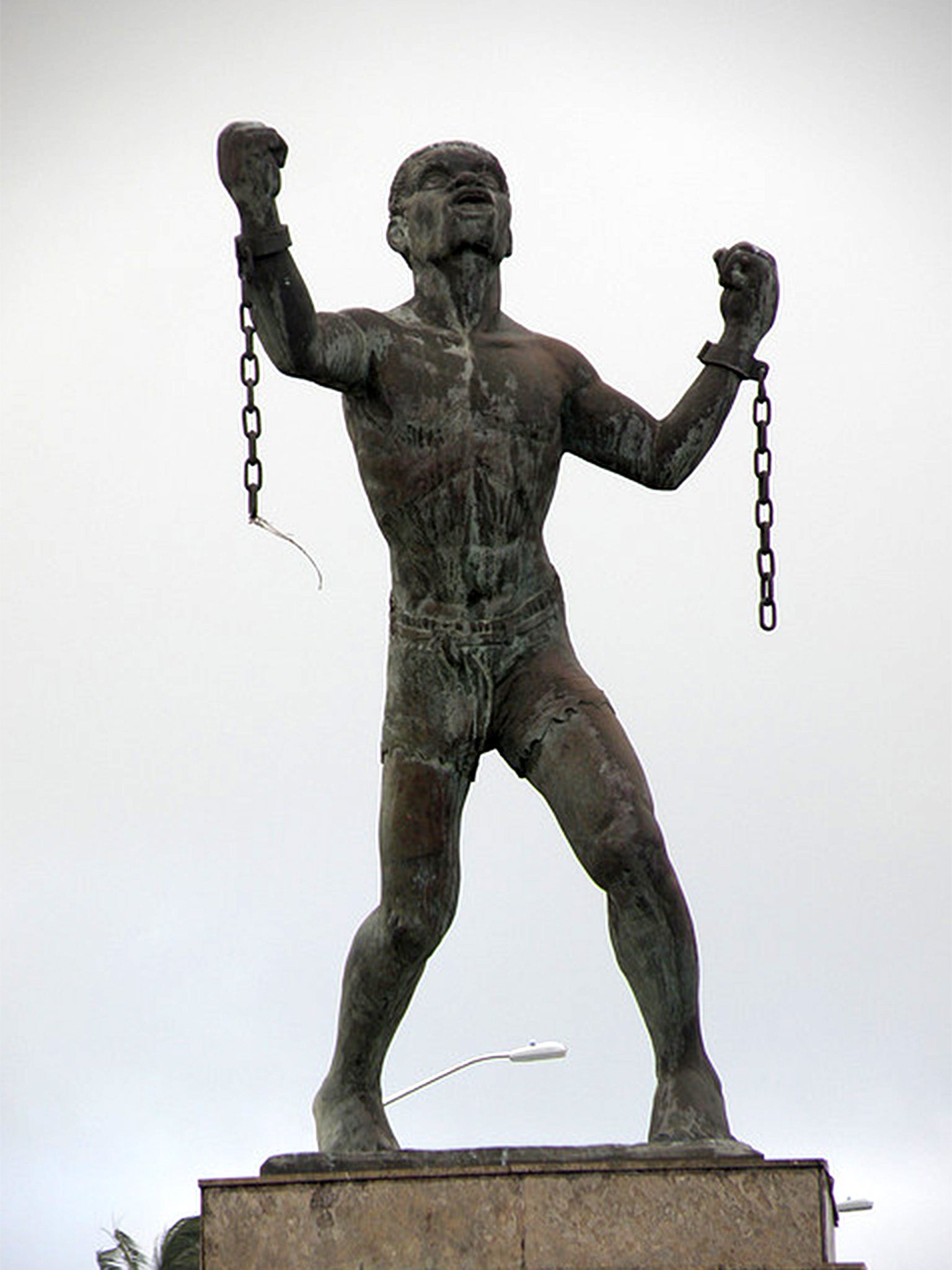
Ms Mottley, too, has called for financial reparations and an acknowledgement and apology for wrongdoing. She told a conference of Caribbean nation state leaders – Caricom – last summer: “For us, reparations is not just simply about money ... but it is also about justice.
“I do not know how we can go further unless there is a reckoning first and foremost.”
When and where this issue will be raised with the UK is another question – one Barbadian opposition MP, Edmund Hinkson, has even called for reparations to be brought up with Prince Charles during his visit.
Others spoken to by The Independent wanted this week’s announcement to act as a catalyst for further change on the island.
In Needham’s Point, near Bridgetown, one grandmother, Alison, said: “I’m looking forward to seeing how this transition goes – the whole rebranding, such as the renaming of places – because there are a lot of locations that still carry the name of the monarchy, such as the Royal Police Force, prisons and so on.
“I see it as a new birth for my country and I’m proud of where we are.”
The next steps
Beyond the new head of state, the severing of ties with Britain gives Barbados a chance to look to a future it can shape entirely on its own.
At the official opening of Golden Square Freedom Park as part of the country’s celebratory events, Ms Mottley told the audience: “As we move to become a republic ... I ask us to recognise that the challenges may have changed but they are as daunting as they ever were.
“Regardless of the challenges that face us, we shall remain focused on achieving what we must as one of the smallest nations in the world – but one of the most capable nations of this global community.”
Politicians in the country’s parliament have been shaping the political agenda with the new Charter of Barbados, which, among other things, sets out the protection of a person’s sexual orientation as a fundamental right for the first time.
But others have raised concerns that there has not been proper consultation on what the move will entail. Paul Rock, president of the African Heritage Foundation (AHF), told The Independent: “We are all for the republic; our main concern is that there was not enough injection of public thought and opinion in the process.
“We think it was very rushed, and there are key issues which we are uncertain of, in terms of how things are going to unfold.
“We have a saying here which refers to “buying a pig in a bag” – this means you don’t know what you’re getting, what you paid for. In a sense, we don’t know what is going to happen.”
As it carves out its own path, Barbados will remain in the commonwealth, as one of 54 nations that recognise the Queen as the head of their association.
Robert Morris, a celebrated historian, former politician, and Barbados’s previous ambassador to Caricom, told The Independent that the move was “not a break with Britain”.
“Barbados does not have difficulty with the sovereign as a sovereign; in other words, there’s no animosity to the house of Windsor,” he said.
“The issue is that Britain, as our former colonial master, would have had a relationship with us that’s soured by the long history of slavery and, therefore, the idea is that once you come of age, you cannot retain that relationship.
“At the same time, we are very cognisant of the fact that Britain has, in a sense, provided the format for our development – almost everything that we have in Barbados relates to Britain in one way or another.”
As Barbados takes a significant step to leave behind another aspect of colonialism, the words of many in Bridgetown and beyond echo the sentiment set out by Ms Mottley in last year’s throne speech, in which she announced the path to a republican state: “Barbados’s first prime minister, The Rt Excellent Errol Walton Barrow, cautioned against loitering on colonial premises. That warning is as relevant today as it was in 1966.”
Join our commenting forum
Join thought-provoking conversations, follow other Independent readers and see their replies
Comments